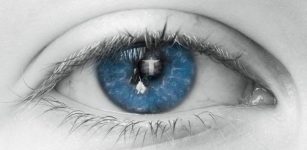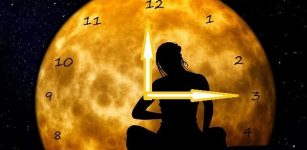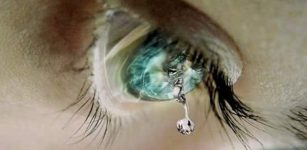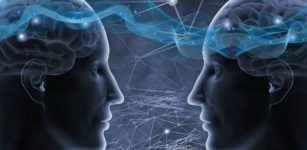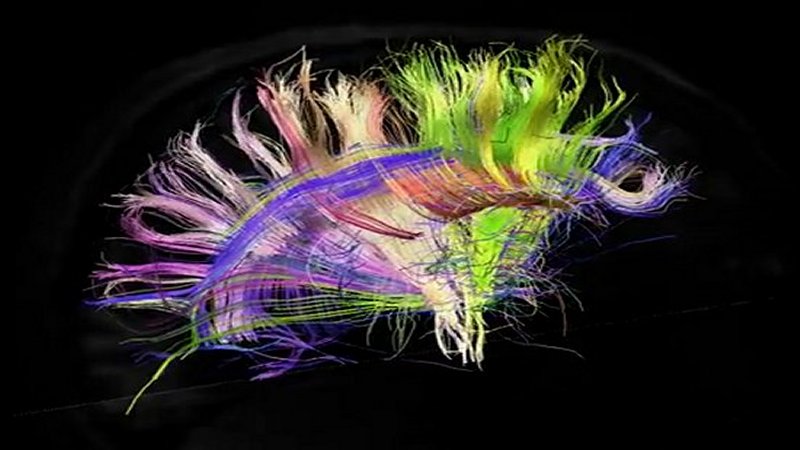Can Breathing Determine If Free Will Is An Illusion?
Cynthia McKanzie – MessageToEagle.com – Ancient and modern scientists have long pondered whether free will exists. Some suggest everything is predetermined and we have no free will at all.
In what way can breathing shed new light on the free will experience?
A group of researchers from Ecole Polytechnique Fédérale de Lausanne decided to investigate the connection between free will and breathing.

Credit: Public Domain
Backed by signals from the brain and lungs, scientists have discovered that the readiness potential is in fact coupled to breathing and that acts of free will happen as you exhale -providing an unexpected perspective on free will.
Think about it. Do you inadvertently make decisions because you are hungry or cold? In other words, does the brain’s processing of internal bodily signals interfere with your ability to act freely?
This line of thinking is at the heart of research that questions our ability to act on thoughts of free will.
We already know that inner body signals, like the heartbeat, affect our mental states, can be used to reduce the perception of pain and are of fundamental importance for bodily self-consciousness.
Thanks to a new discovery, it turns out that these inner body signals do indeed affect acts of volition.
“We show that voluntary action is indeed linked to your body’s inner state, especially with breathing and expiration but not with some other bodily signals, such as the heartbeat,” explains Olaf Blanke, EPFL’s Foundation Bertarelli Chair in Cognitive Neuroprosthetics and senior author.
Some Say The Readiness Potential Shows Free Will Is An Illusion
At the center of these results is the readiness potential (RP), a signal of brain activity observed in the human cortex that appears not only before voluntary muscle movement, but also before one becomes aware of the intention to move. The RP is the signature of voluntary action since it consistently appears in brain activity measurements right before acts of free will (like being aware that one wants to reach for the chocolate).
Interpretations of the RP have been debated for decades. Some interpret the RP to show that free will is an illusion, since the RP precedes the conscious experience of free will. It seems to show that the brain commits to a decision (chocolate) before we are even consciously aware of having made that decision.
See also:
Free Will Is An Illusion – Says Author Of Your Brain Is A Time Machine
What You See Is Not Real – It’s A Visual Illusion – Scientists Say
Unexplained Mystery Of The Highway That Affected People’s Free Will
Is Everything Predetermined Or Do We Have A Free Will?
More recently, it was suggested that the RP could be an artifact of measurement, potentially putting free will back into our command.
But if we take on the view that our conscious decisions arise from a cascade of firing neurons, then the origin of the RP may actually provide insight into the mechanisms that lead to voluntary action and free will.
The way the brain’s neurons work together to come to a decision is still poorly understood. Our conscious experience of free will, our ability to make decisions freely, may then be intricately wired to the rest of our body.
The EPFL results suggest that the origin of the RP is linked to breathing, providing a new perspective on experiences of free will: the regular cycle of breathing is part of the mechanism that leads to conscious decision-making and acts of free will. Moreover, we are more likely to initiate voluntary movements as we exhale. (Did you reach for that piece of chocolate during an exhale?)
These findings suggest that the breathing pattern may be used to predict ‘when’ people begin voluntary action. Your breathing patterns could also be used to predict consumer behavior, like when you click on that button.
The EPFL findings suggest that acts of free will are affected by signals from other systems of the body. Succumbing to that urge to eat chocolate may depend more on your body’s internal signals than you may realize!
Blanke elaborates, “That voluntary action, an internally or self-generated action, is coupled with an interoceptive signal, breathing, may be just one example of how acts of free will are hostage to a host of inner body states and the brain’s processing of these internal signals. Interestingly, such signals have also been shown to be of relevance for self-consciousness.”
Acts Of Free Will And Inner States Of The Body
The prevailing view in neuroscience is that consciousness is an emergent phenomenon of the brain. Firing of the brain’s neurons leads to consciousness and the feeling of free will or voluntary action.
By belonging to the physical universe, the brain’s electrical activity within the constraints of anatomy, is subject to the laws of physics. In this sense, brain signals encoding the body, lungs and heart might naturally affect the brain’s cognitive states too and therefore influence acts of free will.
The Brain Is Already Unconsciously Activated Before We Make A Decision
In the early 1980s, neuroscientist Benjamin Libet further tested the relationship between the RP and conscious awareness or intention of voluntary action. His highly influential results showed that approximately 200ms before his subjects pressed the button, they were aware of an urge or the intention to act, something Libet referred to as the W time, and yet the RP consistently preceded W time.
Libet suggested that these findings showed that even before we make a conscious decision of voluntary action, the brain was already unconsciously activated and involved in planning the action.
Some have interpreted the relation between the RP and W time as an indication that human free will might be an illusion. The RP is viewed as the brain committing to a decision (to press the button) before the subject is even aware of having made that decision. If commitment to a decision is being made before we are even aware of it, then what mechanism is making the decision for us?
For the neuroscientist who considers consciousness to arise from brain activity (versus brain activity arising from consciousness), Libet’s results may not surprising, since the conscious experience of free will is viewed as an emergent phenomenon of brain activity.
Yet, Libet’s results are in conflict with the notion of free will and voluntary action in philosophy of the mind, in folk psychology, in culture, and in legal matters.
Written by Cynthia McKanzie – MessageToEagle.com Staff Writer




